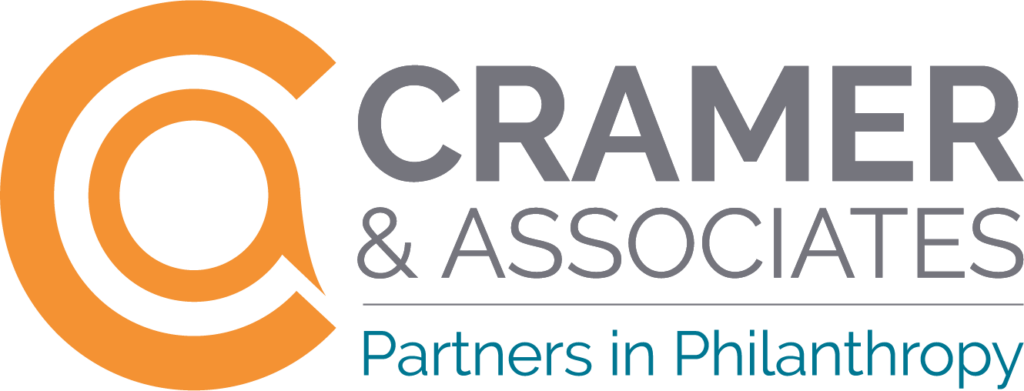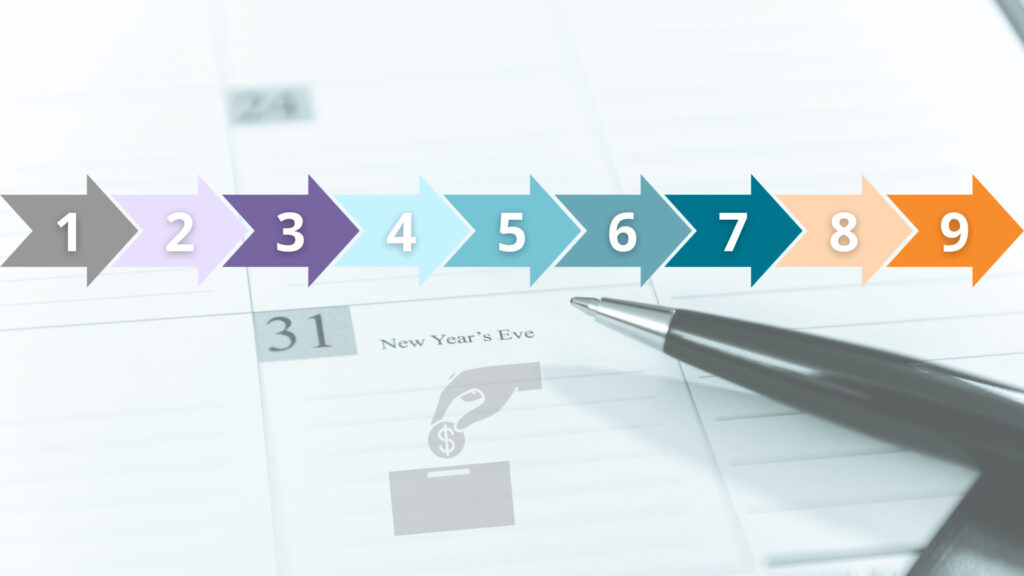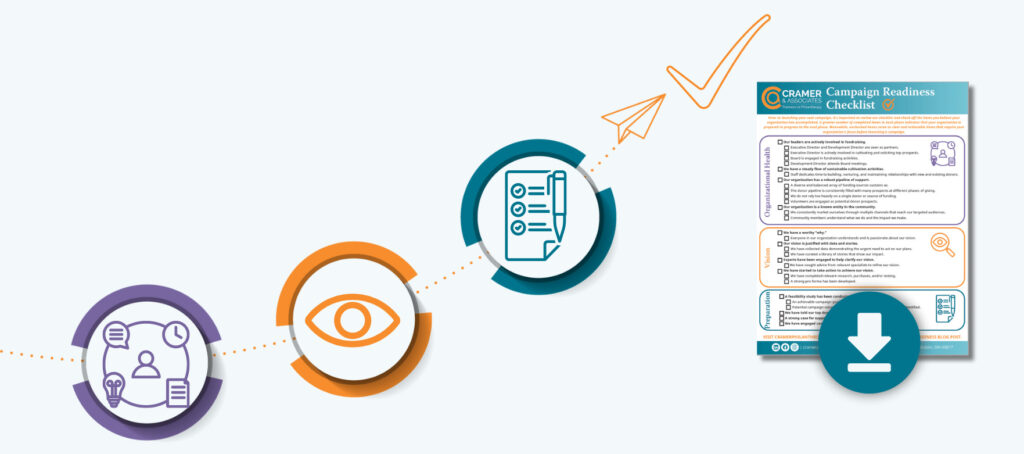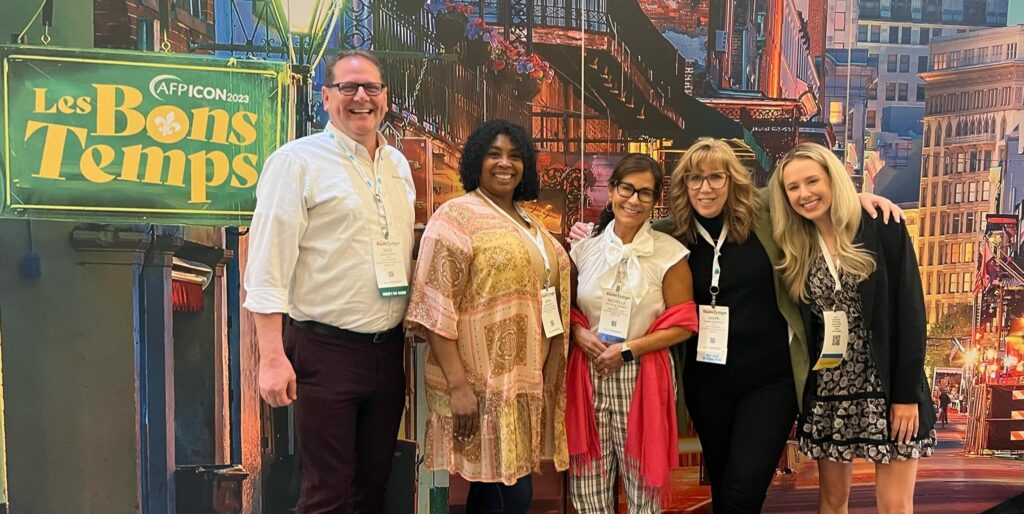Michelle Cramer, CFRE, President & CEO
If you’re a parent like me, you know just how much it means to get a call from your child. Not just a Mother’s Day call or an emergency SOS call, but an out-of-the-blue, “thinking of you,” “how’s your day going?” call. It means more than I can say.
I remember my mom wishing I would pick up the phone more. “I know you’re busy,” she would say, “but I love hearing from you.” Now that my daughters are grown, I find myself saying the same thing to them! Mom passed away six years ago, and if I could go back and change one thing, I would have called her more often.
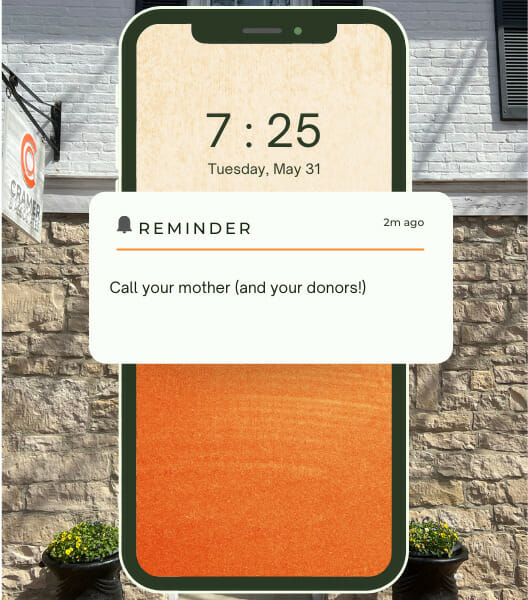
These simple calls are so valuable, especially when we’re busy! And they can even be a note, a text, or an email. When people reach out just to say hello, they touch our hearts. In the middle of our crazy lives, they make us feel special.
We found this true during the pandemic. When COVID changed our lives, some nonprofits were paralyzed. Development officers felt anxious about reaching out to donors: What if they’re sick or caring for a family member who caught the virus? What if their business is in trouble? They probably have other things to worry about, and I would just be bothering them.
As a firm, we encouraged development officers to reach out to their donors, just to ask how they and their families were doing. And those donors often responded by asking how they could help the organization through the crisis. They trusted the people who showed authentic compassion.
If a development officer’s portfolio is too big, they can’t be this personal with every donor in it. What happens if you focus on cultivating deep relationships with a smaller but dedicated group of donors—people who have stuck with your organization through thick and thin?
Take a look at your portfolio and ask these questions about your donor relationships.
How well do you know each of your donors?
The perfect portfolio size depends a lot on the organization and the development officer. But if you ran into a donor at a restaurant or grocery store, would you recognize them? And would they recognize you? If the answer is no, then you might need to downsize your portfolio. Aim to have a solid, close relationship with everyone in it.
Do you set aside enough time to maintain your donor relationships?
Time is our most valuable resource. If you are trying to balance too many donors, you won’t have quality time with any of them. When you meet with a donor, don’t schedule another engagement right after. You risk having to cut off the conversation just as it is getting good, or even worse, making your donor feel like they are just another item on your to-do list.
Do your donors feel valued?
When you call your donors, what is the reason you’re reaching out? If you only ever call them to ask for a gift, they might feel like you only value them for their money. Make sure they feel valued for who they are. Learn about their lives outside of your cause. If you know your donors on a personal level, you will have many opportunities to reach out regularly: to send birthday and anniversary wishes, to see how a vacation went, or even congratulate them on their favorite team’s big win.
You might even be able to help them in a crisis. At Cramer, we’ve helped some of our closest clients through personal tragedies. When your donors feel like they can rely on you the same way your organization relies on them, that’s when you know you have a relationship that will last.
Do you make time for yourself?
In a line of work that is all about giving, it can be tempting to give of ourselves until we are exhausted and burnt out. Set aside time to rest and replenish your energy—and don’t wait until you’re running on fumes to practice self-care! Build personal time into your daily, weekly, and monthly routines so that you can build the best relationships possible.
Donor relationships are investments. You cultivate them with time, care, sincerity, and gratitude. When you give of yourself, these relationships will reward you—sometimes in unexpected ways. During the early days of the pandemic, I heard from organizations whose donors took the initiative to reach out to them to offer gifts before their development directors even started reaching out to donors! That kind of trust and loyalty doesn’t happen by accident. It is the result of real, honest friendship.
Take some time to consider how you can cultivate those donor relationships today. Then call your mother.
